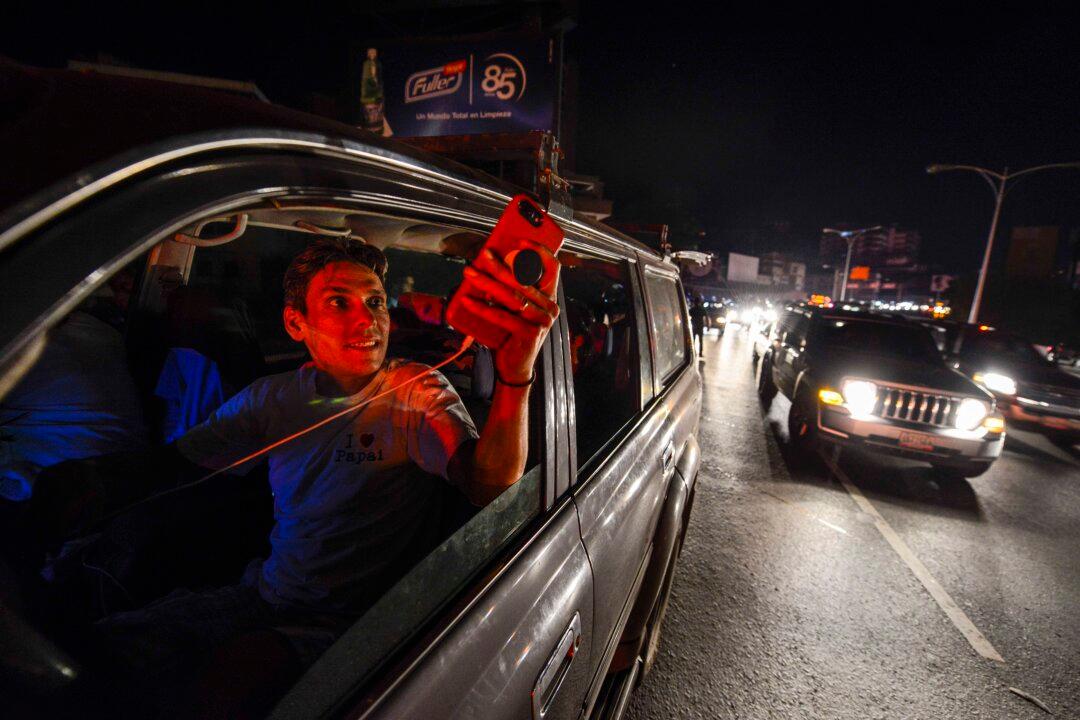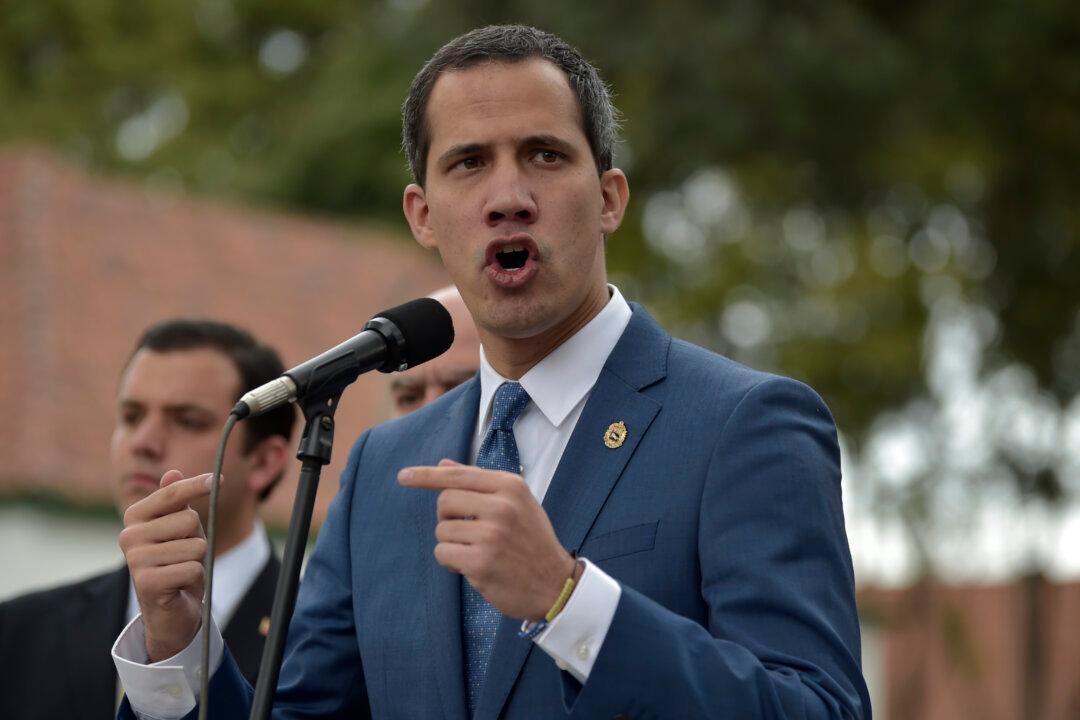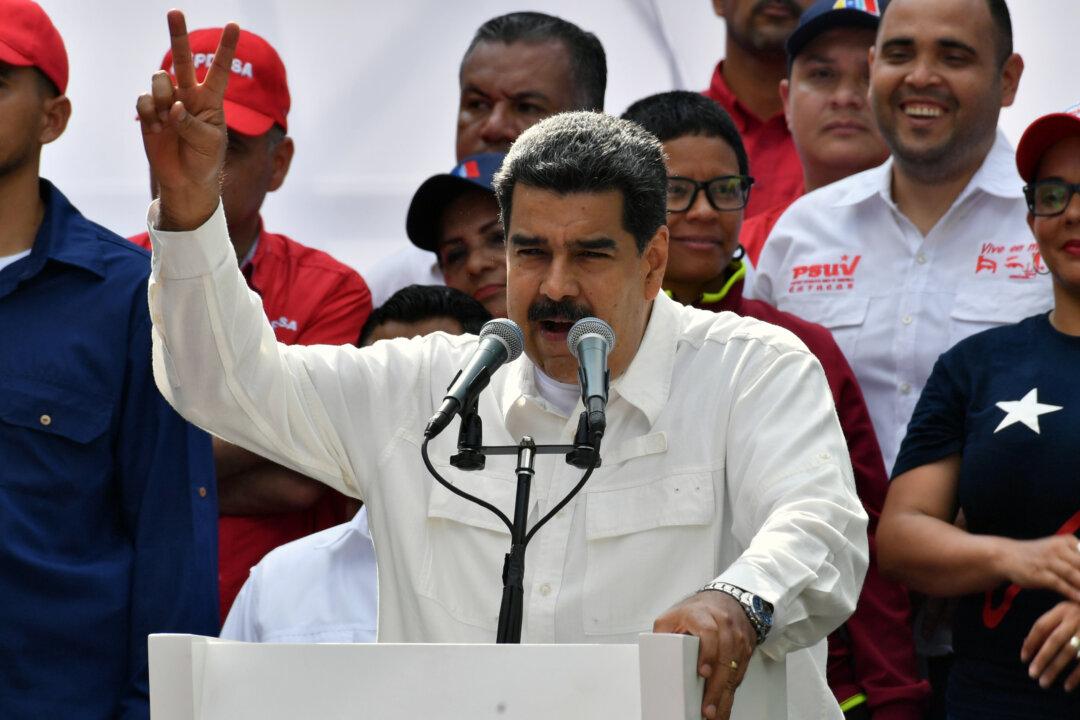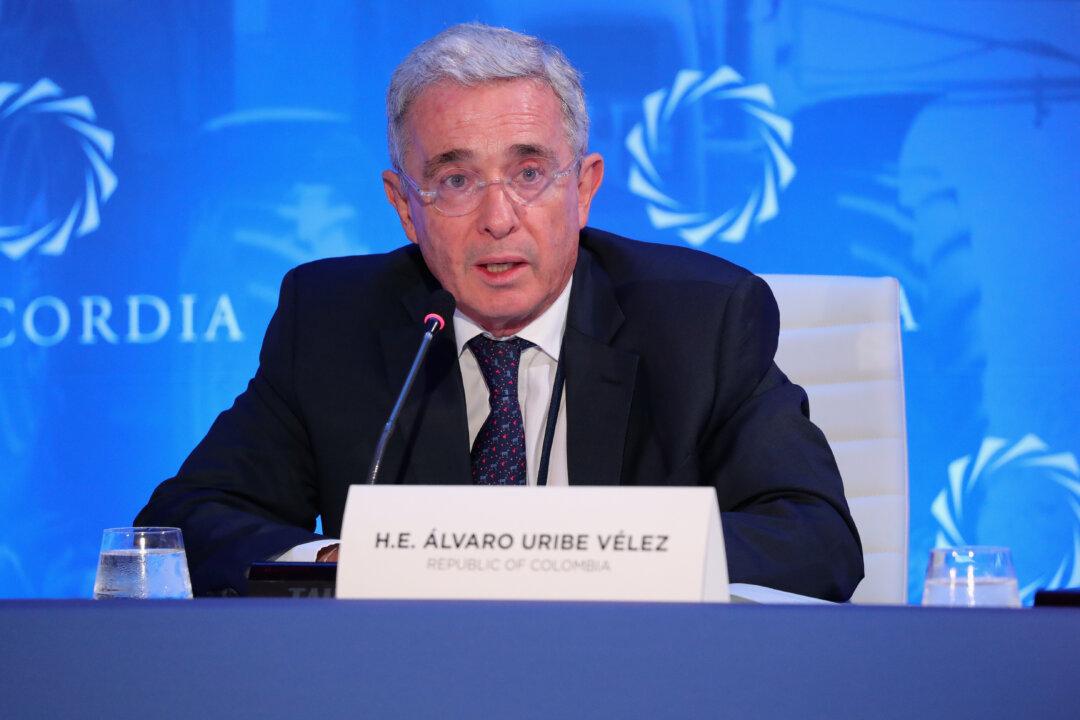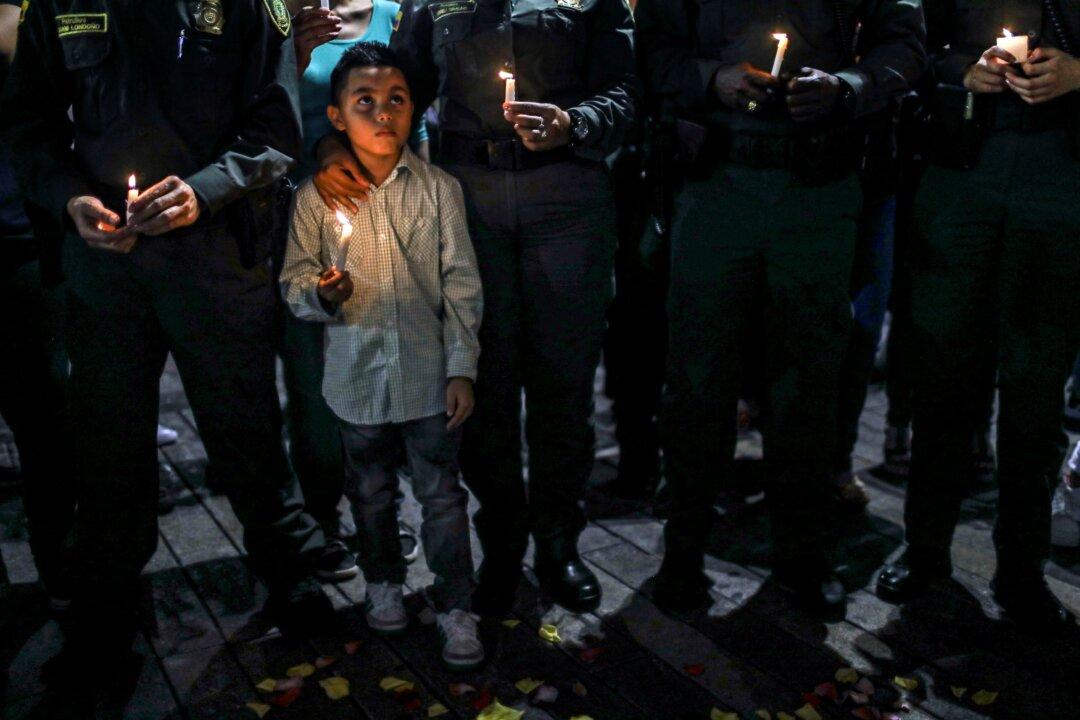BOGOTA, Colombia—Thousands took to the streets of Caracas, Venezuela, again on March 9 to protest regime leader Nicolás Maduro, while nationwide power cuts plunged the country into darkness.
Protesters have repeatedly denounced widespread food and medicine shortages, rampant hyperinflation of over 10 million percent, and brutal human-rights abuses committed by security forces, but by the evening of March 7, they had yet another reason to raise their voices, as the country experienced the worst blackouts in decades.
